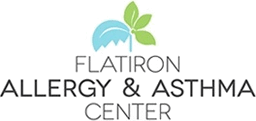Insect Sting Hypersensitivity
Insects frequently associated with insect sting allergy include:
- Honeybee
- Yellow Hornet
- White Faced Hornet
- Yellow Jacket
- Paper Wasp
- Fire Ant
Individuals with insect sting allergy develop allergy antibodies (IgE) targeted against insect venom allergens. When these IgE antibodies bind venom after an insect sting, an allergic reaction develops ranging in mild (large local reaction) to life-threatening severity (systemic allergic reaction).
Symptoms of Large Local Reactions include:
- Swelling Contiguous to Site of Sting
- Delayed Onset and Resolution
Symptoms of a Systemic Allergic Reaction (anaphylaxis) include:
- Hives, Itching, Flushing
- Swelling of Lip, Tongue, and/or Throat
- Cough, Wheeze, Shortness of Breath, Chest Tightness
- Abdominal Cramps, Vomiting, Diarrhea
- Lightheadedness and/or Passing Out (Low Blood Pressure)
- Anxiety
- Seizure
Insect sting allergy can be life-threatening.
Allergists are the experts in insect sting allergy and diagnose this condition by history, exam, and allergy tests.
The goals in the treatment of insect sting allergy are the prevention of symptoms and, in the case of insect sting, the management of adverse allergic symptoms including anaphylaxis.
Treatment of insect sting allergy includes:
- Insect Avoidance
- Maintenance of Epinephrine Auto-Injector
- Immunotherapy
Insect venom immunotherapy is highly effective in preventing systemic allergic reactions to future insect stings.
By visiting an Allergist, you too can take control of your insect sting allergy and improve your quality of life.
